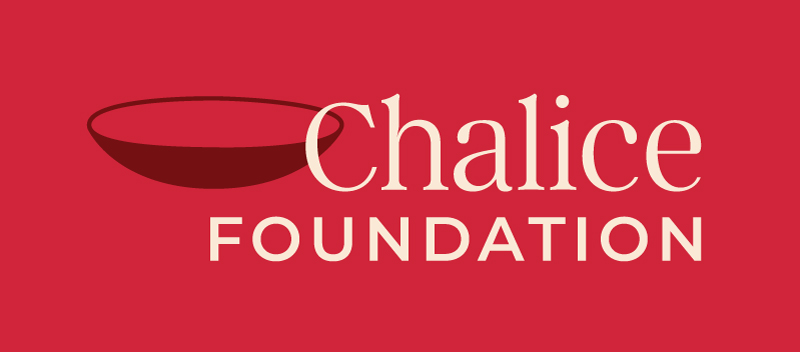Last year Alana Munro wrote a piece for us about menstruation research and this year she is back, sharing the results of a recent survey she conducted over Instagram with menstruating individuals and enlightening us on why 2021 should be the year of the period.
Like most of us in March 2020, I sat at home wondering how and when we would all make it through the COVID-19 pandemic. There appeared to be a sense of universal camaraderie; we’d tell ourselves, “we’re all in this together.” Instead, the pandemic exacerbated the fault lines within our global community, forcing us to uncomfortably stare at our privilege or disadvantage as the undercurrent of poverty and discrimination, reflected through inequitable access to health care, once again bubbled to the surface.
Periods do not stop for pandemics. The loss of income ensued from lockdowns and work-from-home orders to curtail disease transmission reignited the discourse on period poverty – a phenomenon describing how some individuals who experience menstruation face difficulties in accessing menstrual products, like pads and tampons, to manage their menses. Socioeconomically disadvantaged menstruators were pushed further below the poverty line, compounding their experience of period poverty.
As a result, we witnessed calls for governments around the world to supply free pads and tampons in public spaces and schools so girls wouldn’t miss out on their education because of their periods. In tandem, sponsored posts on our social media newsfeeds by International NGOs encouraged monetary donations to support women and girls in accessing basic sanitation to meet their menstrual needs.
When 2021 rolled around and most of us reentered the office, period poverty again made the national agenda when Isobel Marshall was recognised as Young Australian of the Year for the work of her wonderful social enterprise, TABOO, co-founded with Eloise Hall. Hot on their tails, the South Australian, New South Wales and Tasmanian governments announced respective commitments to provide free menstrual products in government schools.
Whilst the relationship between menstrual products and education has been popularised, my research with menstruating university students found that, in fact, experiences of disordered menstruation (e.g. dysmenorrhea, polycystic ovarian syndrome) and menstrual stigma mainly contributed to negative menstrual experiences, and adversely affected students’ education and employment. So, why do these negative aspects of menstruation remain a neglected priority of government?
The survey
Sparked by my curiosity, in January this year I ran a 24-hour Instagram survey to understand the menstrual experiences of my peers and its impacts on their social, economic and educational participation. I preface this by acknowledging that running an Instagram survey has its limitations – primarily, people with a vested interest in, or have been affected by, their periods may be more likely to participate, thereby swaying results. That aside, 240 individuals who currently, or once had, experienced menstruation answered eight questions about their menses. (You can download the infographic of the findings here.)
Navigating menstruation outside the home
Over three-quarters of participants (77%) wished they could suppress their menstruation. When asked where they felt most confident managing their menstruation, 98% of respondents felt most confident at home compared to their workplace or learning institution (school, university), and a third of participants felt anxious when managing menstruation in public bathrooms. Whilst this indicates that the work and learning environments for menstruators are inadequate in meeting their menstrual needs, it also demonstrates the resilience of these individuals in navigating these environments despite evoking distress or discontent.
A lack of social support impacts economic and educational participation
Over 74% of respondents found their period negatively impacted their productivity, and 70% indicated that they had taken time off from school, university or work because of menstruation. For those who absented, less than one-third (28%) told their employer, lecturer or teacher that their absenteeism was menstrual-related. This apprehension to disclose menstruation may find its roots in menstrual stigma. Based on societal ignominy, from a young age, most girls and women have internalised the expectation that menstruation is to be experienced in secret. Ironically, by choosing to not discuss menstrual-related concerns with teachers or employers, the culture of silence and shame is perpetuated. Workplaces, schools and universities thereby fail to acknowledge the magnitude of the impact that menstruation can have on employment and educational outcomes and are less inclined to address this.
We all play a role in perpetuating the stigma
Participants believed that both men and women are just as likely to perpetuate menstrual stigma, indicating that the onus is on all genders to create a safe environment where these issues can be discussed. The concept of menstrual leave should form part of this conversation, as 82% of participants indicated they would like to access such a policy. Sydney Colussi eloquently wrote about the polarising conversation on access to menstrual leave and making space for the menstruating body at work.
These findings show that devoting significant resources to addressing the nexus between access to menstrual products and school attendance is an oversimplification of how menstruation affects education and participation in other facets of life. Combatting period poverty is crucial to supporting all menstruators to contain their menstrual blood comfortably, free from shame. Nevertheless, it is one small part of the menstrual experience puzzle and, alone, cannot sustainably improve the menstrual health and wellbeing of all menstruators.
Real change comes when the conversation on periods shared at our dinner tables, in schools, in the workplace and in the highest levels of decision-making evolve to address broader menstrual concerns. If we are to put periods rightfully on the national agenda, we need to recognise and lend our voice, research capability and advocacy to other aspects of the menstrual experience that have been overlooked but are necessary to improving the quality of life and equal opportunities for menstruators.
The time for change is now. 2021 should be the year of the period. If not now, when?

Alana Munro
Alana Munro is a PhD candidate at the University of Sydney and a Policy Officer at the Australian Department of Health. In 2018, Alana and her team launched and implemented the National Action Plan for Endometriosis and has worked with organisations to rollout national programs and guidelines related to menstrual health. Currently, Alana is conducting research into students’ menstrual experiences and the impact on their educational outcomes. She has a sincere passion for young peoples’ sexual and reproductive health and rights and advocating for equitable access to good health and quality education.


